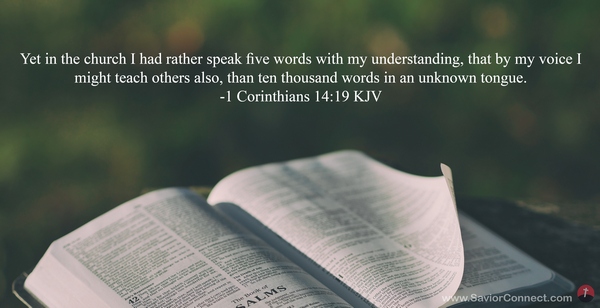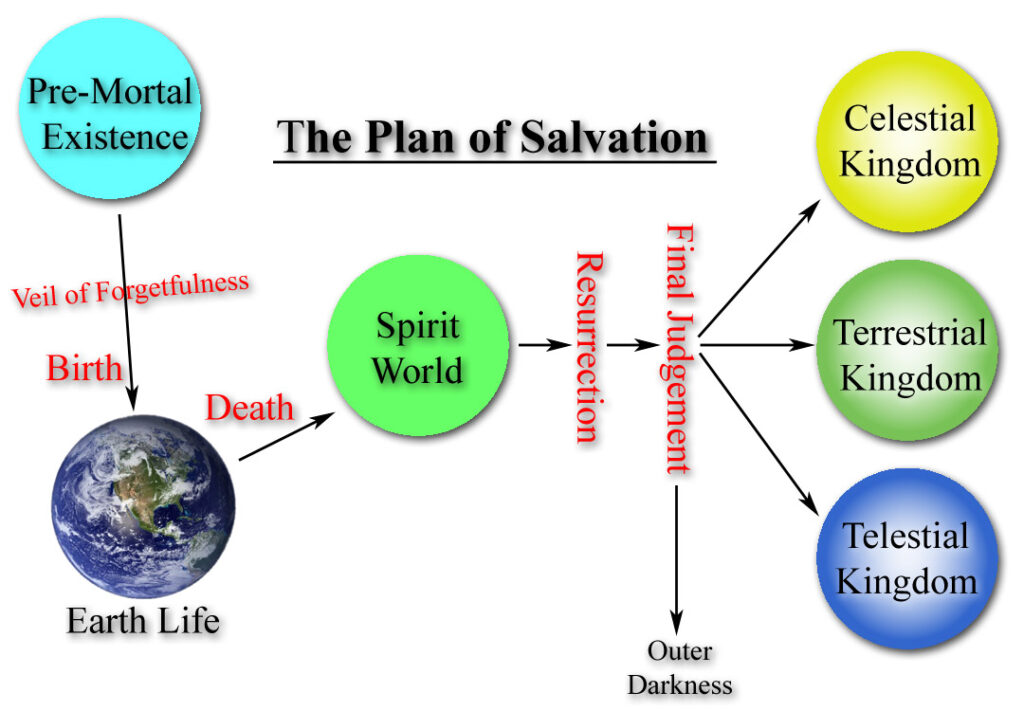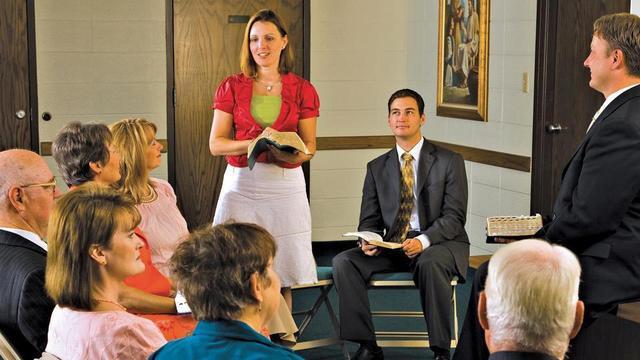To accompany your Come Follow Me study for September 4-10
In addition to reading the indicated chapters, you may wish to:
Read the applicable portions of the New Testament Institute Student Manual at:
- Chapter 39: 1 Corinthians 12–14 (churchofjesuschrist.org)
- Chapter 40: 1 Corinthians 15–16 (churchofjesuschrist.org)
See the following videos:
- Book of 1 Corinthians Summary: A Complete Animated Overview at Book of 1 Corinthians Summary: A Complete Animated Overview – YouTube
If you would like a Kahoot game related to this material which you could use for personal study or use with your family or your class, click here: https://create.kahoot.it/share/1-corinthians-14-16/96494e8a-7fa6-4592-83d2-07e22f6b7705. (To use it with a group, after clicking on this link, you will need to log into Kahoot, creating a free account if you have not done so previously, then click on the blue “Start” button.)
Points to Ponder in 1 Corinthians 14-16
1. These chapters contain some of the richest doctrinal resources of the entire New Testament, yet, ironically, they are also among the most misunderstood. It a nutshell, how would you summarize the most important of these doctrines and how they are misunderstood by many. Why do you suppose there is such misunderstanding of these most basic gospel truths?
2. 14:1. Why is the gift of prophecy the best spiritual gift of all? What does Paul mean by the term “prophesy”?
3. 14:8. What applications can you make of this concept of trumpets with uncertain sounds?

4. 14:19. What applications can you make of this concept of Paul’s preferring “five words with my understanding” rather than “ten thousand words in an unknown tongue”?

5. 14:20. Can you translate this verse into simple English?
6. 14:27-28. How comfortable would Paul be at a revival where people spoke in unknown tongues? Why?

7. Where does Paul describe how an ideal Sunday School class should work?
8. 14:32. Is it true that the Spirit of the Lord may so overtake an individual during a great emotional revival meeting that the individual may actually lose control of his physical and mental faculties and be carried away into shouts of praise and bodily contortions?
9. 14:34. How do you harmonize Paul’s assertion that women should keep silence in the churches with his earlier statement in 11:5 to the effect that they could both pray and prophecy publicly?

10. 15:6. What other account do we have of this event, where the resurrected Jesus was reportedly seen by more than 500 brethren at once?

11. 15:19. Why are we “of all men most miserable,” if “in this life only we have hope in Christ?” Isn’t there a lot the gospel and the Church do to make us happy even in this life, regardless of what comes after?
12. 15:22. Do both righteous and wicked people get resurrected? If so, what motivation is there to be righteous?
13. 15:29. Why don’t other churches believe in baptism for the dead? What do they think this verse means? What answer can you give to their arguments?

14. 15:40. In commenting on this passage, an anti-Mormon critic wrote, “A careful examination of the context, verses 35 to 54, reveals that Paul was comparing our earthly body with the body we shall receive in the resurrection; he was not speaking of three kingdoms in heaven. All of us now have a terrestrial or earthly body, but in the resurrection we shall have a celestial or heavenly body …. Therefore we see that the doctrine of three degrees of glory cannot be supported from the Bible.” How would you respond?

15. 15:44, 50. How do you reconcile these verses with the concept that we will have tangible bodies in the resurrection?
16. 16:20. How can we be true Christians when we don’t do this?
Possible Answers to Points to Ponder in 1 Corinthians 14-16
1. These chapters contain some of the richest doctrinal resources of the entire New Testament, yet, ironically, they are also among the most misunderstood. It a nutshell, how would you summarize the most important of these doctrines and how they are misunderstood by many. Why do you suppose there is such misunderstanding of these most basic gospel truths?
These truths include:
- The reality and importance of continuing prophecy and revelation, which most Christians claim ended with the death of the apostles.
- The literal resurrection from the dead, understood by many to be only a “spiritual” resurrection, whatever that would be.
- The glorious doctrine of proxy ordinances for those who died without them, understood and accepted only by Latter-day Saints
- A heaven with multiple degrees of glory to accommodate virtually all of God’s children, rather than just a heaven and a hell, as believed by most Christians.
Perhaps these truths are so central to true Christianity and to much that is most exciting about it that the devil and his legions have worked overtime to obscure them to those without the light of the restored gospel.
2. 14:1. Why is the gift of prophecy the best spiritual gift of all? What does Paul mean by the term “prophesy”?
By “prophesy,” Paul means to speak under divine inspiration “to edification, and exhortation, and comfort” (1 Corinthians 14:3), not necessarily involving foretelling the future at all. He views this as the best gift because it is potentially the most helpful to others. He views speaking in tongues as potentially more of a curiosity. The gift of healing may benefit primarily the physical body. Miracles may do the same or help primarily with other temporal needs. But the gift of prophecy can help others spiritually, especially since, as Nephi promised, “When a man speaketh by the power of the Holy Ghost, the power of the Holy Ghost carrieth it unto the hearts of the children of men.” (2 Nephi 33:1.)
3. 14:8. What applications can you make of this concept of trumpets with uncertain sounds?
Your choice. Two thoughts come most quickly to my mind:
- Prophets and apostles of The Church of Jesus Christ of Latter-day Saints speak with a voice of conviction and certainty, as opposed to so many in the world who speak only with the argument of human reasoning and speculation.
- Latter-day Saint missionaries, though young and unprepared by human standards, can bear testimony that they know their message is true, which leads hundreds of thousands each year to follow their certain lead.
4. 14:19. What applications can you make of this concept of Paul’s preferring “five words with my understanding” rather than “ten thousand words in an unknown tongue”?
Your choice. The first two related ideas that impress me are:
- The importance of speaking simply, yet powerfully, so our hearers won’t misunderstand. President Harold B. Lee said: “You’re to teach the old doctrines, not so plain that they can just understand, but you must teach the doctrines of the Church so plainly that no one can misunderstand” (“Loyalty,” in Charge to Religious Educators, 2nd ed., 64).
- I have frequently quoted this passage from Paul to argue that in addition to using the King James Version of the Bible as a primary resource, we should also encourage readers to frequently consult modern translations, such as the New International Version or the New Living Translation, which in many cases are more likely to provide five or more understandable words as opposed to the too often “unknown tongue” modern readers hear from the King James translators.
5. 14:20. Can you translate this verse into simple English?
This provides a good opportunity to demonstrate how a modern translation of the Bible can sometimes be clearer than the King James. The New Living Translation of this verse says:
Dear brothers and sisters, don’t be childish in your understanding of these things. Be innocent as babies when it comes to evil, but be mature in understanding matters of this kind.
The New International Version says:
Brothers and sisters, stop thinking like children. In regard to evil be infants, but in your thinking be adults.
The Amplified Bible says:
Brothers and sisters, do not be children [immature, childlike] in your thinking; be infants in [matters of] evil [completely innocent and inexperienced], but in your minds be mature [adults].
All of these, along with multiple other translations, can be found on the same page at 1 Corinthians 14:20 – Bible Gateway.
6. 14:27-28. How comfortable would Paul be at a revival where people spoke in unknown tongues? Why?
Speaking in tongues is a practice that some believe is a sign of being filled with the Holy Spirit. It involves uttering sounds that are not intelligible to human listeners but are believed to be a language of God or angels. But Paul specifies that speaking in tongues should be accompanied by someone who can interpret. Presumably, Paul would be most uncomfortable with unintelligible and uninterpreted tongues.
7. Where does Paul describe how an ideal Sunday School class should work?
In 1 Corinthians 14:29-31, he explains how a gathering of “prophets” should work. But as he has urged all of us to seek to have the gift of prophecy, it would ideally include all class members. The Lord would inspire each with some of what was to be shared in the class, and each would be invited to “prophesy one by one, that all may learn, and all may be comforted.” This would be the ideal format for fast and testimony meetings and ward and stake council meetings, too, of course.

8. 14:32. Is it true that the Spirit of the Lord may so overtake an individual during a great emotional revival meeting that the individual may actually lose control of his physical and mental faculties and be carried away into shouts of praise and bodily contortions?
Not according to Paul, who tells us that “the spirits of the prophets are subject to the prophets” and that “God is not the author of confusion, but of peace.”

9. 14:34. How do you harmonize Paul’s assertion that women should keep silence in the churches with his earlier statement in 11:5 to the effect that they could both pray and prophecy publicly?
The Bing artificial intelligence tool provides us with the following possible explanation:
“According to some sources, Paul’s intention was not to silence women at all times during church meetings, but only when their speech would cause disorder or confusion. In 1 Corinthians 11:5, Paul acknowledges and encourages women to pray and prophesy aloud in church, as long as they do so with proper respect and modesty. In 1 Corinthians 14:34-35, Paul requests women to be silent when they have questions about what is being taught or prophesied, and to ask their husbands at home instead. This was because some women may have been interrupting the speakers or challenging their authority in a way that was disrespectful or disruptive. Paul’s main concern was not to restrict women’s participation, but to promote order and harmony in the church for the sake of the gospel.”
10. 15:6. What other account do we have of this event, where the resurrected Jesus was reportedly seen by more than 500 brethren at once?
This mention by Paul seems to be the only record we have of what must have been a most remarkable occasion.
11. 15:19. Why are we “of all men most miserable,” if “in this life only we have hope in Christ?” Isn’t there a lot the gospel and the Church do to make us happy even in this life, regardless of what comes after?
This observation of Paul was probably more true in his day than it is in ours. In Paul’s day, Christians were being fed to the lions and otherwise persecuted in numerous ways. If there really were nothing beyond this life, it would have been tragic for them to have given up so much for nothing. In our day, most of us have suffered very little for sake of our faith. Sure, we have given up well over 10% of our income for tithes and offerings and have “missed out” on many activities our non-religious neighbors have participated in. But it could be convincingly argued that Latter-day Saints have still been happier than anyone else, even in this life. This is a good reminder that the scriptures need to be read in context and that what was once said to one group is not necessarily applicable forever to all others.

12. 15:22. Do both righteous and wicked people get resurrected? If so, what motivation is there to be righteous?
Anyone who is puzzled for more than fifteen seconds by this question needs to be recycled through Primary. There is infinitely more to eternal happiness than just being resurrected. Yes, all will be “made alive” through Christ, in that their bodies and spirits will be reunited, but not all will enjoy the same measure of eternal happiness and glory, as Paul will soon make clear.
13. 15:29. Why don’t other churches believe in baptism for the dead? What do they think this verse means? What answer can you give to their arguments?
Bing’s artificial intelligence app provides the following summary:
“1 Corinthians 15:29 is a verse that has puzzled many Christians for centuries. It says: “Otherwise, what will those do who are baptized for the dead? If the dead are not raised at all, why then are they baptized for them?” (NASB)
“Latter-day Saints believe that this verse refers to a practice of vicarious baptism for deceased ancestors who did not have a chance to hear and accept the gospel in their mortal lives1. They believe that this is a way of showing love and respect for their family members and giving them an opportunity to choose salvation in the spirit world.
“Non-Latter-day Saints have different interpretations of this verse. Some of them are:
- “The baptism for the dead is a figurative expression for martyrdom. Those who are baptized for the dead are those who risk their lives for the sake of the gospel, knowing that they will be resurrected with Christ.
- “The baptism for the dead is a rhetorical question that Paul uses to challenge those who deny the resurrection. He is not endorsing or explaining this practice, but using it as an example of how absurd it would be to deny the resurrection if some people were doing such a thing.
- “The baptism for the dead is a reference to a heretical group that practiced proxy baptism for their deceased relatives or friends. Paul is not approving or condoning this practice, but using it as an argumentum ad hominem (appeal to hypocrisy) against those who deny the resurrection. He is saying that even these misguided people have more faith in the resurrection than they do.
- “The baptism for the dead is a metaphor for conversion. Those who are baptized for the dead are those who join the church because of the influence or testimony of someone who has died. They are baptized in their place, so to speak, as a way of honoring their memory and continuing their legacy.
“These are some of the possible ways that non-Latter-day Saints understand 1 Corinthians 15:29. However, none of them can claim certainty or consensus on this matter, as it remains one of the most obscure and debated verses in the Bible. “
To me, it appears that if Paul didn’t approve of the practice of baptism for the dead, he missed a great opportunity to say so. But I think it would be difficult to convince a skeptic that the Latter-day Saint interpretation is correct through either reason or an appeal to historical sources. That is not where we got the doctrine. It came to Joseph Smith through revelation. Others can know that by prayerfully reading the Book of Mormon, learning through the testimony of the Holy Ghost that that book is true, and that therefore, Joseph Smith was a prophet of God. It would follow naturally that his teachings on the subject of baptism for the dead would also be true.
14. 15:40. In commenting on this passage, an anti-Mormon critic wrote, “A careful examination of the context, verses 35 to 54, reveals that Paul was comparing our earthly body with the body we shall receive in the resurrection; he was not speaking of three kingdoms in heaven. All of us now have a terrestrial or earthly body, but in the resurrection we shall have a celestial or heavenly body …. Therefore we see that the doctrine of three degrees of glory cannot be supported from the Bible.” How would you respond?
My reaction to this argument is very much like my feelings about the one to baptism for the dead. Joseph Smith learned about the three degrees of glory through revelation, although 1 Corinthians 15:40-42 may well have been a catalyst for his asking the right questions to receive that revelation. Once he knew of the celestial, terrestrial, and telestial kingdoms of glory, he could go back to Paul’s writings to the Corinthians and see that Paul believed the same thing. Joseph Smith even added a reference to “telestial” bodies in his Joseph Smith Translation. In short, we don’t use Joseph Smith’s explanation of 1 Corinthians 15:40-42 or 1 Corinthians 15:29 to prove to the world that he was a prophet. Rather, we learn through prayerful study of the Book of Mormon that he was a prophet, whereupon we accept and treasure his explanations of Paul’s writings.
15. 15:44, 50. How do you reconcile these verses with the concept that we will have tangible bodies in the resurrection?
First, a “spiritual body” doesn’t mean one which has no physical component, only one which is characterized by being full of the Spirit. We often refer to someone as being very “spiritual” without meaning that he has died. Jesus went to such lengths to prove to His disciples that he had a body of flesh and bones following His resurrection, that it defies credulity to claim that the resurrection He has provided for each of us won’t be like His. And when it says that “flesh and blood cannot inherit the kingdom of God,” it simply means that His kingdom will be free from mortal corruption. Joseph Smith taught that in the hereafter, our bodies will not be quickened by blood, as they are here, but by a sort of spirit fluid coursing through our veins.
16. 16:20. How can we be true Christians when we don’t do this?
Who says we don’t? In many parts of the world, Latter-day Saints, along with everyone else, indeed greet one another with what could aptly be called a “holy kiss.” Paul, of course, is not prescribing a change of culture for those where this is not natural. But he is inviting us to greet each other warmly, enthusiastically, and lovingly, whatever the physical manifestations of those feelings may be.

